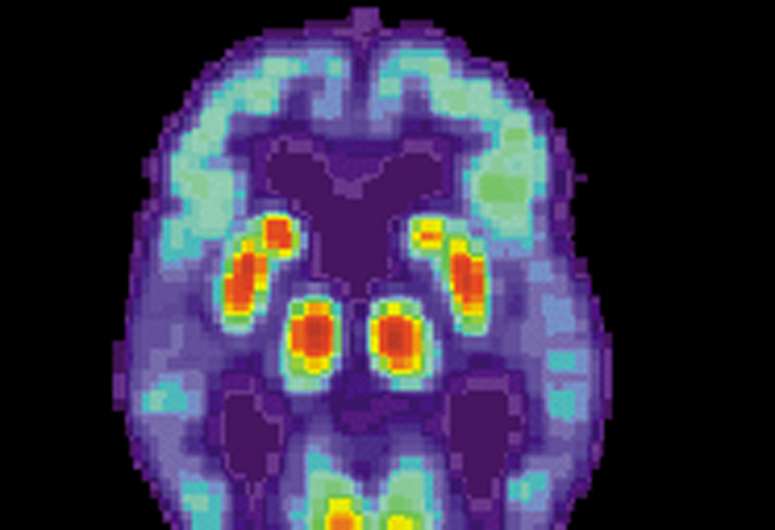Alzheimer's disease: Neuronal loss very limited

Frequently encountered in the elderly, Alzheimer's is considered a neurodegenerative disease, which means that it is accompanied by a significant, progressive loss of neurons and their nerve endings, or synapses. A joint French and Canadian study published in Scientific Reports now challenges this view.
Conducted among more than 170 subjects at various stages of Alzheimer's disease, the study by the team led by Salah El Mestikawy (Douglas Mental Health University Institute, Canada) and Stéphanie Daumas (Université Pierre et Marie Curie, France) has shown instead that the disease is accompanied by a minor decline in neuronal and synaptic markers.
"Much to our surprise, in studying the fate of eight neuronal and synaptic markers in our subjects' prefrontal cortices, we only observed very minor neuronal and synaptic losses. Our study therefore suggests that, contrary to what was believed, neuronal and synaptic loss is relatively limited in Alzheimer's disease. This is a radical change in thinking," explains El Mestikawy, an associate professor at McGill University.
The scientists also attempted to correlate all these minor synaptic losses with the subjects' level of dementia. Their results show that the declines in synaptic biomarkers had little impact on the participants' cognitive skills.
Towards other therapies
The study implicitly suggests that dementia is associated with a synaptic dysfunction rather than the disappearance of synapses from the patient's cortex. Identifying this dysfunction could lead to the development of effective treatments for this disease.
"Until now, therapeutic interventions have been aimed at slowing synaptic destruction. Based on our study, we are going to have to change our therapeutic approach," says El Mestikawy.
According to the Alzheimer Society of Canada, 564,000 Canadians currently have Alzheimer's disease or another form of dementia. The figure will be 937,000 within 15 years. Presently, there is no truly effective treatment for this disease.
More information: "Moderate decline in select synaptic markers in the prefrontal cortex (BA9) of patients with Alzheimer's disease at various cognitive stages" Scientific Reports, January 17, 2018. www.nature.com/articles/s41598-018-19154-y

















